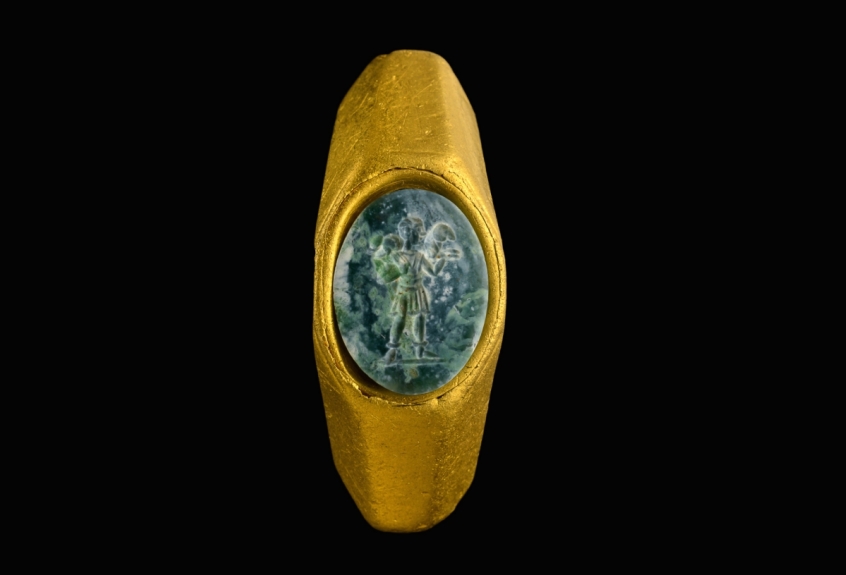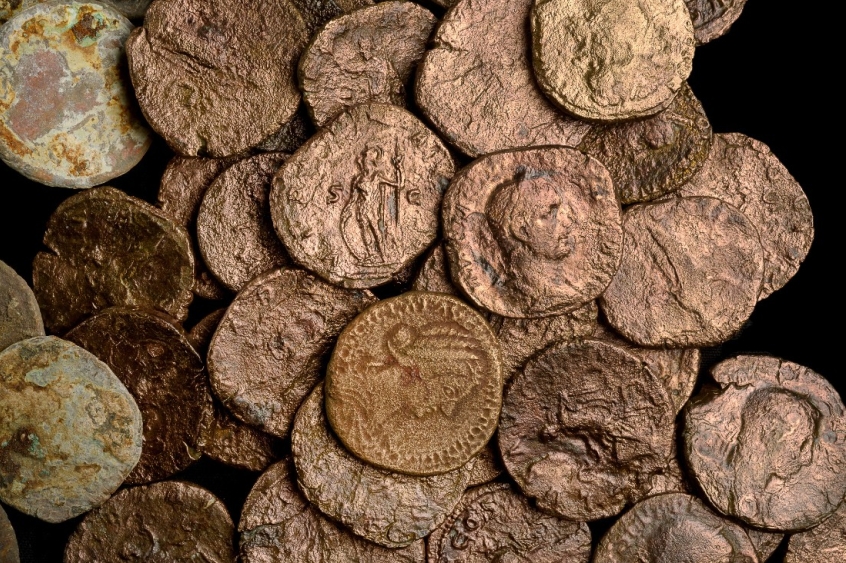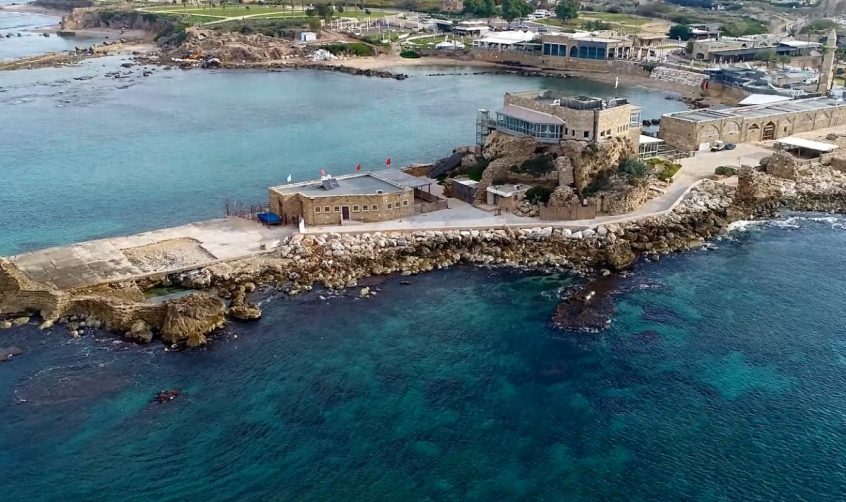
An ancient gold ring engraved with the figure of the Good Shepherd is one of the "spectacular" finds from two ancient shipwrecks discovered off the coast of Israel.
The ring is octagonal in shape and features a green gemstone carved with the figure of a young shepherd boy dressed in a tunic and bearing a ram or sheep on his shoulders.
The image of the Good Shepherd is one of the earliest images used to depict Jesus and suggests the owner was a Christian, the Israel Antiquities Authority (IAA) said.
The shipwrecks are situated just off the shore of Caesarea and were surveyed by the IAA's marine archaeology unit.
Caesarea is a significant location in early Christianity and the site where Peter baptized the Roman centurion Cornelius, as recorded in Acts 10.
"This was the first instance of a non-Jew being accepted into the Christian community," said Jacob Sharvit, of the marine archaeology unit.
"From here, the Christian religion began to be disseminated across the world."
The older of the two ships sank around 1,700 years ago, and the other 600 years ago.
The remains of the hulls and cargoes were found in just 4m of water and near a large broken iron anchor, suggesting the ships went down during a storm.
"They may have been anchored offshore after getting into difficulty, or fearing stormy weather, because sailors know well that mooring in shallow, open water outside of a port is dangerous and prone to disaster," said Sharvit and Dror Planer, also of the marine archaeology unit.

The IAA described the gold ring as "exquisite" and a "rare find".
Other finds from the site include hundreds of silver and bronze Roman coins, a Roman bronze figurine in the form of an eagle, bronze bells to ward off evil, and pieces of pottery.

A beautiful red gemstone found in the wreckage was carved with a lyre, which in Jewish tradition is called 'Kinor David' - or 'David's harp' - a reference to 1 Samuel 16:23 when King David played his harp for Saul to bring him relief from an evil spirit.
Eli Eskozido, Director of the Israel Antiquities Authority, said, "Israel's coasts are rich in sites and finds that are immensely important national and international cultural heritage assets. They are extremely vulnerable, which is why the Israel Antiquities Authority conducts underwater surveys to locate, monitor and salvage any antiquities.
"There are many kinds of sporting activities along Israel's shores, including diving, snorkeling, open water swimming and sailing, during which antiquities are occasionally discovered.
"We appeal to divers: if you come across an ancient find, take a note of its underwater location, leave it in the sea and report it to us immediately. The discovery and documentation of artifacts at their original find spot has tremendous archaeological importance and sometimes even a small find leads to a great discovery."













